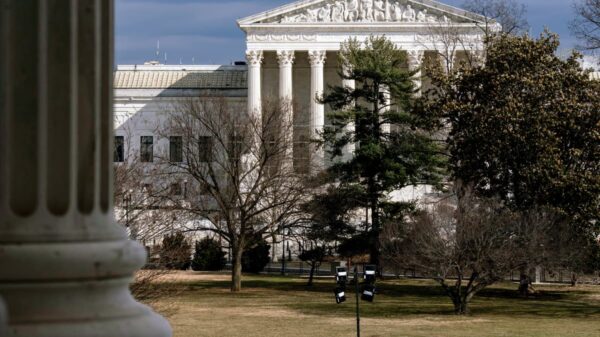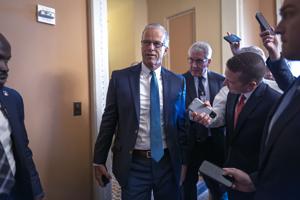The U.S. Senate has passed a significant piece of legislation championed by former President Donald Trump, marking a pivotal moment in ongoing Republican efforts to reshape key policy areas. The bill, which has been the subject of intense negotiation among GOP lawmakers, still faces potential amendments as discussions continue.
The bill’s passage represents a major legislative victory for Trump’s allies, who have been working to advance his policy agenda despite his absence from the Oval Office. The legislation covers a broad range of issues, from tax reforms to healthcare policy, and is seen as a cornerstone of the Republican strategy heading into the next election cycle.
Key Provisions of the Bill
Among the most notable components of the bill is a series of tax cuts aimed at stimulating economic growth. These cuts are designed to benefit both individuals and businesses, with a particular focus on small enterprises that have struggled in the post-pandemic economy. Additionally, the bill seeks to roll back several regulations introduced during the Biden administration, which Republicans argue have stifled economic recovery.
Healthcare reforms are another critical aspect of the legislation. The bill proposes changes to the Affordable Care Act, aiming to reduce premiums and expand access to healthcare providers. Critics, however, warn that these changes could lead to coverage losses for millions of Americans.
Background and Context
The passage of this bill comes at a time of significant political division in the United States. The Republican Party has been working to consolidate its base by aligning closely with Trump’s policy priorities, a strategy that has proven effective in rallying support among conservative voters. This legislative push is seen as an effort to solidify these gains and counteract Democratic initiatives.
Historically, similar efforts to pass sweeping reforms have faced challenges in the Senate, where the filibuster rule requires a supermajority for most legislation. However, the current political climate, characterized by heightened partisanship, has led to increased use of budget reconciliation processes, allowing for passage with a simple majority.
Expert Opinions and Reactions
Political analysts have weighed in on the implications of the bill’s passage. According to Dr. Emily Carter, a political science professor at Georgetown University, “This bill is a clear signal of the Republican Party’s commitment to Trump’s legacy. It will likely shape the policy landscape for years to come.”
Meanwhile, economic experts have expressed mixed reactions. Some praise the tax cuts as a necessary step to boost the economy, while others caution that they could exacerbate the federal deficit.
“The long-term economic impact of these tax cuts remains uncertain,” said Dr. James Lee, an economist at the Brookings Institution. “While they may provide short-term relief, the potential for increased debt cannot be ignored.”
Implications and Future Prospects
The passage of this bill sets the stage for further legislative battles as GOP lawmakers work to implement their agenda. The bill’s success in the Senate is likely to embolden Republican efforts in the House, where they hold a slim majority. However, the potential for amendments and ongoing negotiations means that the final version of the bill could look significantly different.
Looking ahead, the bill’s impact on the upcoming midterm elections cannot be overstated. As Republicans seek to regain control of Congress, their ability to deliver on key policy promises will be crucial.
“This legislation is a litmus test for the GOP’s ability to govern effectively,” noted political strategist Karen Thompson. “Its success or failure will have far-reaching consequences for the party’s future.”
As the bill moves forward, all eyes will be on the House of Representatives, where the next chapter of this legislative saga will unfold. Lawmakers on both sides of the aisle are preparing for what promises to be a contentious debate over the future direction of U.S. policy.






































































